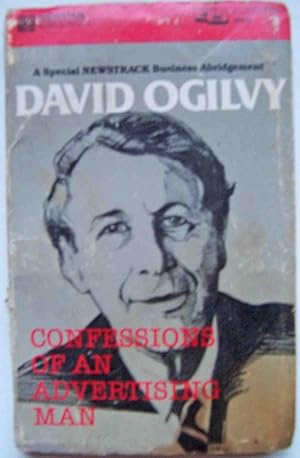

His firms response? They respectfully declined the offer. This account was so large that it would have substantially increased the size of his current revenue by around 50%. This led to the incident where Ford approached Ogilvy and his firm to design the campaign for the Edsel (it didn't do too well). One of my favorite rules was how he couldn't take on any client that would take up too much of his overall revenue. not accept and a list about how he choose his employees and managers. To show this, every chapter seems to be laid with the dogma of running a firm, this included a list talking about why he wrote this book, a list about which clients he would accept vs. It wasn't simply about making money, it was about providing the best quality product to the best quality clients.

What makes this book special is not how it Ogilvy talks about the business of shaping his business. Ogilvy, an immigrant from the UK, is the man responsible for the look and feel of the Madison Avenue Advertising Agency in the 60's (have ever seen 'Mad Men'? That look and feel).

That's why it was a pleasure to read 'Confessions of an Advertising Man' by David Ogilvy. This had led me to believe that in order to be apart of a company that has a strong culture and beliefs, you need to be working for one of these 'product' companies and not simply building someone else's business.

And if I urged you to think of ten great businesses, do you think any one of them would be non-product companies? Certainly on my list there wouldn't be any. Organizations like Google or GE might come to mind, where there is a great culture that creates products for the masses. When you think of 'great businesses', you usually think of 'product' companies.


 0 kommentar(er)
0 kommentar(er)
